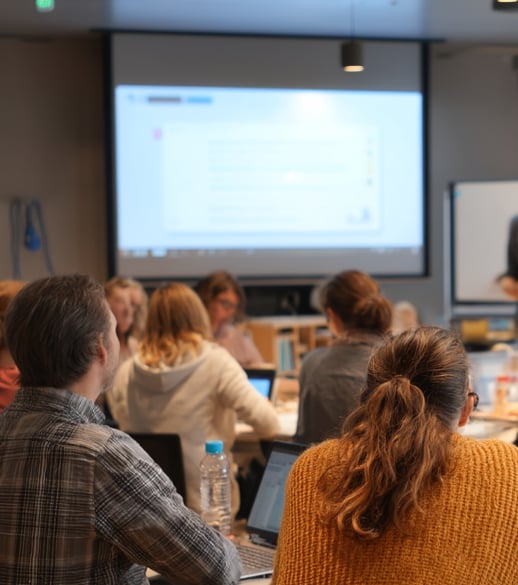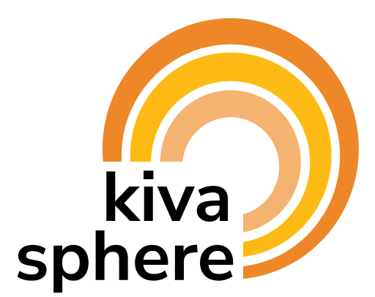

AI FOR EDUCATORS
Harness AI to Advance Your Teaching Practice


Unlock the full power of artificial intelligence to enrich your teaching, deepen your subject-matter expertise, and design truly student-centered learning experiences. This course guides K–12 and higher-ed instructors, instructional designers, and academic leaders through proven strategies and hands-on practice, so you emerge confident in applying AI tools to every facet of your professional practice.
Rapidly expand your own knowledge by leveraging AI as a research and ideation partner
Compose clear, context-rich prompts that yield classroom-ready lesson plans, activities, and assessments
Apply advanced prompting techniques—chain-of-thought reasoning, iterative refinement—for deeper AI insights
Deliver personalized, actionable feedback at scale to support each student’s growth trajectory
Build streamlined AI-powered workflows that save preparation time and boost productivity
Design interactive simulations, games, and custom visual aids that bring complex concepts to life
AI in education presents several challenges despite its transformative potential. While AI offers opportunities for personalization and efficiency, educators and institutions face significant hurdles in implementation and effective use.
Educator Resistance and Knowledge Gap: Many faculty members feel overwhelmed by the rapid pace of AI advancement or lack interest in incorporating AI tools into their teaching practices, creating a significant adoption barrier.
Ethical Concerns and Data Privacy: The use of AI raises questions about student data protection, algorithmic bias, and maintaining academic integrity while balancing innovation with responsible implementation.
Integration Complexity: Educators struggle to meaningfully integrate AI beyond surface-level applications like generating lesson plans, requiring advanced skills in prompt engineering and workflow design.
Balancing Automation with Human Touch: Finding the right balance between AI-powered efficiency and preserving the essential human elements of teaching and personalized feedback remains challenging.
Keeping Pace with Rapid Technological Change: The AI landscape evolves quickly, making it difficult for educational institutions and teachers to stay current with the latest tools, techniques, and best practices.


Challenges with AI adoption in Education
AI for Educators is a practical, research-driven course empowering teachers to leverage AI for lesson planning, assessment, feedback, and professional growth.
Learn prompt engineering, ethical AI use, and workflow integration to personalise student learning and streamline your practice—while retaining your unique teaching philosophy.
Includes AI prompt library and support community.
Key Outcomes
By the end of this program, you will be able to:
Author highly specific, context-rich prompts that yield nuanced instructional materials
Develop formative and summative assessments targeting higher-order thinking
Generate personalized feedback reports supporting each student’s learning trajectory
Construct AI-driven simulations, interactive activities, and visual aids
Design a customized, AI-enhanced professional learning plan to deepen your pedagogical expertise


Who is this for
• Classroom teachers and higher-ed faculty seeking to integrate AI meaningfully
• Instructional designers and academic technologists tasked with course innovation
• Department chairs, curriculum coordinators, and professional-development leads
• Educators committed to equitable, engaging, and future-ready learning environments
Prerequisites: Basic familiarity with common educational technology; no prior AI experience required.
Here is What You Will Learn
Module 1
Foundations of AI in Education
AI landscape - now and the future
Prompt engineering and frameworks for lesson planning and assessments
AI tools for teachers and administrators
AI workflows to increase personal learning
Create engaging simulations and other teaching resources with AI
Ethical and Secure use of AI
Module 2
AI-Powered Lesson Planning & Desgin
Developing student personas with AI to understand diverse learner needs, backgrounds, and learning stylesGenerating rich instructional materials—custom images, diagrams, slide decks, and simulations—with targeted prompts
Designing visual aids, simulations and instructional materials such as custom images, diagrams, PowerPoint presentations
Generate a teaching philosophy statement to guide your teaching
Prompt Engineering for creating effective SLOs
Design AI-enhanced workflows that streamline lesson preparation, resource curation, and instructional delivery
Module 3
Designing Effective Assessments
Generate formative and summative assessment items that are aligned with SLOs
Use advanced prompting techniques to create assessment questions for higher- order thinking
Integrate AI-powered games and interactive activities as alternative assessment methods
Create rubric template for a specific assignment type
Employing chain-of-thought and scaffolding prompts to develop questions that foster higher-order thinking
Module 4
Grading, Feedback & Personalized Support
Creating reports or summaries of student performance and growth\
Generating individualized feedback reports that highlight strengths, misconceptions, and next steps
Leverage iterative prompting to refine feedback and progress-monitoring summaries
Embed AI insights into parent-teacher communications and student conferences
Are you an individual interested to sign up for this course?
Are you a school interested to sign up for multiple educators?
My Hopes for the Participants of this Course
As you think about whether this course is for you, I want to share a little story that’s stuck with me from my own teaching journey.
A while back, I was running a class for final-year university students on quality of work-life. At one point, we started talking about lifelong learning, and I asked them a simple question: “What’s something you’d love to learn, just for the fun of it—not for grades, not for anyone else, just because you’re curious?” The answers were all over the place—baking, Greek mythology, you name it.
But here’s what really surprised me. When I asked how they’d actually go about learning these things, almost everyone said they’d look for a university course or sign up for something online. And I thought, isn’t it wild that even now, with all the free information out there, our first instinct is still to look for someone else to guide us?
That’s what got me thinking. In a world where knowledge is everywhere, maybe the real skill we need is learning how to learn on our own. Not waiting for someone to hand us a syllabus or give us permission, but just diving in and figuring things out for ourselves.
And yes, I get the irony—I’m offering a course about self-directed learning, when you could probably Google most of this stuff for free. But sometimes, what we really need is a nudge. A bit of structure. Maybe even just someone to remind us that we’re already capable of so much more than we think.
So, if you’re considering joining us, know that this isn’t about adding more pressure or chasing another certificate. It’s about helping you build the confidence and skills to learn anything you want, whenever you want. Maybe it’ll even be the last course you ever need.
Whether you decide to jump in or find your own way, my real hope is that you’ll give yourself permission to learn for the joy of it. Your curiosity deserves that chance. And if this course feels like the right fit, I’d be genuinely excited to support you on that journey.
